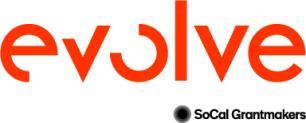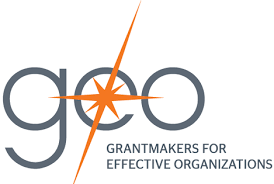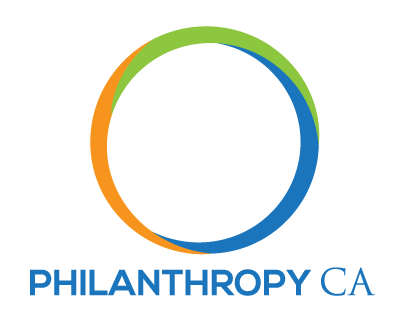Healing Justice: An Integral Approach to Advancing Racial Equity | 2024 Foundations of Racial Equity: Session 3
About Session 3
This third session of the Foundations of Racial Equity Series focuses on the importance of healing justice as a strategy, framework, and way of being within philanthropic institutions. The session will focus on internal organizational practices and external opportunities for philanthropy to resource healing justice strategies.
In the early 2000’s healing justice was introduced as a political and cultural organizing strategy by BIPOC southern-based organizers responding to white supremacist & xenophobic violence; a conservative backlash post 9/11 and increased fascism within the region and the nation. Defined by the Kindred Southern Healing Justice Collective, this strategy is deeply rooted in Black feminism and Black radical traditions of the South, and responds to generational trauma and systemic oppression through building community/survivor-led responses to sustain our collective well being. There is a growing call and desire for those in the philanthropic sector who are funding movement spaces, organizations, and community work to define, design, and implement Healing Justice and Holistic Security grantmaking and practices into their portfolios and organizational cultures.
This first module will ground participants in the lineage and historical influences that shaped the strategy of healing justice. Participants will delve into the foundational principles and values of healing justice. Trainers will lead philanthropic practitioners through an understanding of the impact and role of grantmakers at this particular moment and beyond to expand on opportunities to build infrastructure and scale in Healing Justice political work.
The second module will provide participants with an opportunity to develop a deeper understanding of what an integrated philanthropic Healing Justice and Holistic Security praxis include. We will discuss the interdependent and interlocking nature of Healing Justice and Holistic Security, core considerations for grantmaking, programming, and internal organizational culture shifts as well as possible broader philanthropic impacts
Join us to:
- Learn the history and lineage of healing justice as a political framework.
- Understand the role healing justice plays in philanthropic priorities such as grassroots organizing, power building.
- Explore healing justice practices to use in their foundations to create a sustainable and equitable organizational culture.
About the Series
Learn More about the Series Here
- Session 1: The Cultural, Historical, and Political Foundation of Racism
- Session 2: Racism and the Economy: Understanding Racial Capitalism
- Session 4: Advancing Equity Through Organizational Culture and Operations
- Session 5: Leveraging ABFE's Three Core Tools For Racially Equitable Grantmaking
- Session 6: Awake to Woke to Work: A Framework for Racial Equity in Your Organization
Faculty
Omisade Burney-Scott
Omisade Burney-Scott
Omisade Burney-Scott is a Black southern 7th generation native North Carolinian feminist, mother, and healer. Omisade has spent the better part of the past 25 years of her life focused on the liberation of marginalized people, beginning with her own community through advocacy, philanthropy, community organizing, and culture work. She is the principal and founder of Ananse Consulting and the creator/curator of The Black Girls’ Guide to Surviving Menopause, a multimedia project seeking to curate and share the stories and realities of Black women, femmes, and nonbinary people as they navigate menopause and aging. Omisade is a member of the 1999-2001 class of the William C. Friday Fellows for Human Relations, a 2003 Southeastern Council on Foundation’s Hull Fellow and founding member NGAAP, the Next Generation of African American Philanthropy. She is also a founding tribe member of SpiritHouse NC, a Wisdom Circle member of the Acorn Center for Restoration and Freedom, and previously served as a board member of The Beautiful Project, Village of Wisdom, Working Films, The Fund for Southern Communities, and stone circles. Omisadeis a native of New Bern, North Carolina, and a 1989 graduate of UNC-Chapel Hill. She is the proud mom of two sons, Che and Taj, and currently resides on the occupied land of the Occaneechi Saponi Nation in Durham, North Carolina.
Marisol Jiménez
Marisol Jiménez
Marisol Jiménez (she/her/ella) is the founder and lead consultant for Tepeyac Consulting and brings over twenty years of community engagement, training/facilitation, and policy advocacy experience to her practice. Tepeyac Consulting is a national consulting practice that catalyzes strategic equity efforts in collaboration with grassroots leaders, nonprofit organizations, and foundations. Tepeyac offers the resources, tools, and frameworks to develop and deepen organizations’ and communities’ capacity with an explicit and intentional structural analysis of power that informs the work every step of the way. Marisol brings activism and advocacy experience from her work as the Advocacy Director and Chief Lobbyist for El Pueblo, a NC statewide advocacy organization working on public policy issues at the local, state, and national levels. For the past 10 years, Marisol has worked in multiple capacities to advance equity through facilitation and training, participatory research, transformational community engagement, and frontline activism. Her consulting incorporates popular education, language justice, inclusive logistics, and accessible content as standards of practice. It is her strong belief that this work is most impactful when it is intersectional, proactive, collaborative, and radically hopeful.


